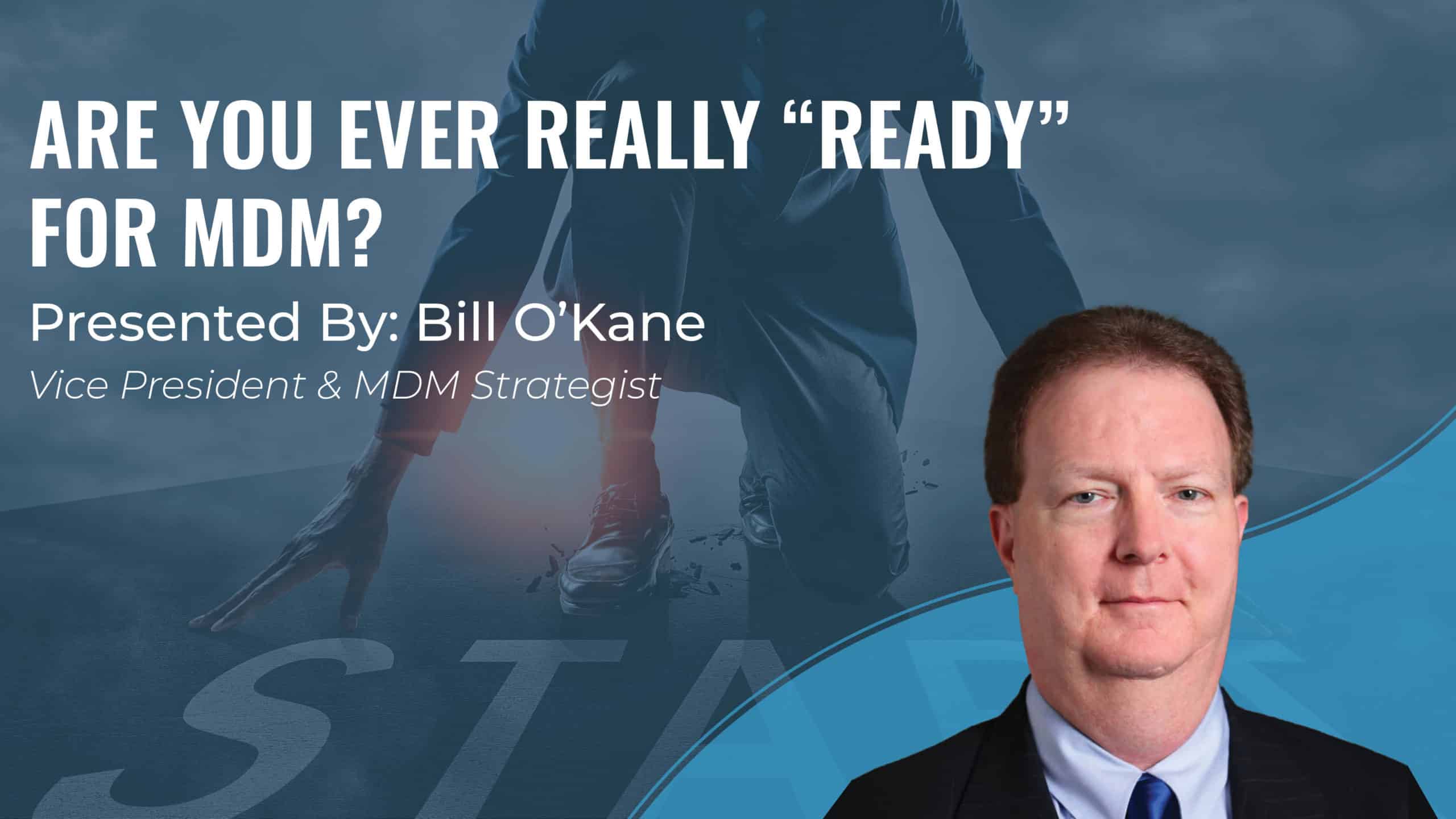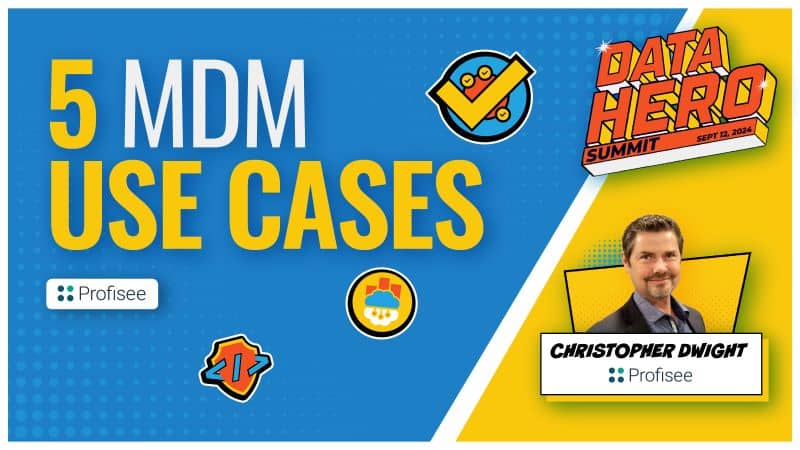After several months of supporting dozens of new logo sales processes at Profisee, I’ve frequently encountered the expected challenge of assisting prospects in formulating business justifications to embark on MDM programs of widely varying scopes, from departmental, single use case scenarios to (eventually) enterprise-wide implementations with fully realized data governance organizations and processes. In fact, one of the reasons I specifically selected Profisee as an employer was its Business Impact Roadmap (BIR) service, supported by a highly experienced, full time Value Consultant. As the name implies, this offering produces not only a robust, board-ready business case, but a high-level implementation roadmap as well. This process, along with a rock-solid, fully containerized MDM platform has allowed us to recently complete what is by far the best year and fourth quarter in Profisee’s history in terms of new business.
Along the way, however, I’ve repeatedly (though not nearly as frequently as the business case requirement) encountered a phenomenon that I never really saw much of in my former role as an MDM and Data Governance analyst for eight years prior to joining Profisee. I’d been content over the last eight months to dismiss it as an anomaly put forth by organizational outliers, until an extensive market research study we recently commissioned began to manifest the same concept as one of the more prevalent reasons that organizations that would certainly benefit from MDM (what we at Profisee refer to as “the 90%”) don’t attempt it.
To be clear, this is not the more incisive and strategic decision to initiate a data governance organization and process (which should also be driven by an outcomes-based business case) to both support and be supported by MDM. This is a much lower level, tactical sentiment along the lines of “we need to get our data cleaned up before we can even think about making an investment on the scale of MDM.” In the best case, this kind of thinking results in one-off data quality projects that may improve the data in the operational and analytical silos that already exist (and likely target at least some data that adds no value to the business), but the business rules that are learned either don’t get retained for posterity, or are not analyzed outside of the silos they were identified in. In addition (and quite ironically), data governance is not undertaken at any level.
Of course, those of us that spend a significant proportion of our time in the discipline of MDM know well that these are exactly the issues that a targeted, outcomes-based MDM program (backed by an integrated set of robust technical capabilities) is meant to solve. Moreover, such an effort can actually be less expensive than one or more standalone data quality projects, because the MDM business case process should identify the most and least valuable data (both within and outside of the identified master data attributes) and make it easier to concentrate on the most attractive value propositions early on.
Given Profisee’s modest average selling price (ASP) and ease of implementation, we are well able to navigate this roadblock when provided the opportunity. For those out there that I have not met that feel that they are not able to take advantage of an MDM program (and I’m betting to some extent, Data Governance as well) due to the abysmal state of the data quality in their silos, I respectfully offer the following thoughts:
- No organization has ever been “ready to do MDM” in the way that you’re thinking. In fact, if your siloed data were of good quality, it’s quite likely that you would attempt to integrate that data between systems on a point-to-point basis, only to learn that the semantics (that is, the definitions of supposedly similar data attributes) across these systems are inconsistent. The scope of a well-designed MDM program also includes resolving this issue for master data, where it is most critical.
- If your data quality is really as bad as you think, then you have accumulated (and continue to accumulate as you read this) technical debt, at least some of which will eventually need to be repaid when one or more critical business processes (for example, regulatory compliance, customer support, or even sales) no longer function correctly at all due to the state of the data involved. Again, a well-designed MDM program that targets critical business outcomes is a proven way to get ahead of these types of issues before they result in a meltdown.
While MDM and strategic Data Governance are certainly mutually dependent for success in most scenarios, believing that the investment in MDM is only warranted once your “street-level” data quality issues have been resolved simply doesn’t make sense. I’ve had several humorous exchanges with (eventual) Profisee customers where this thinking was likened to being “ready” to get married and/or have children, or making another major purchase such as a first home. In the latter comparison, I would say that Data Governance is akin to making sure that your “finances” (Data Governance organization and process) are in decent enough shape to handle a mortgage and other expenses, and definitely warranted.

VP & MDM Strategist @ Profisee
Interested in learning more? Watch the full on-demand webinar recording below.

Bill O'Kane
A former Gartner analyst, Bill O'Kane was the VP & MDM Strategist at Profisee.











